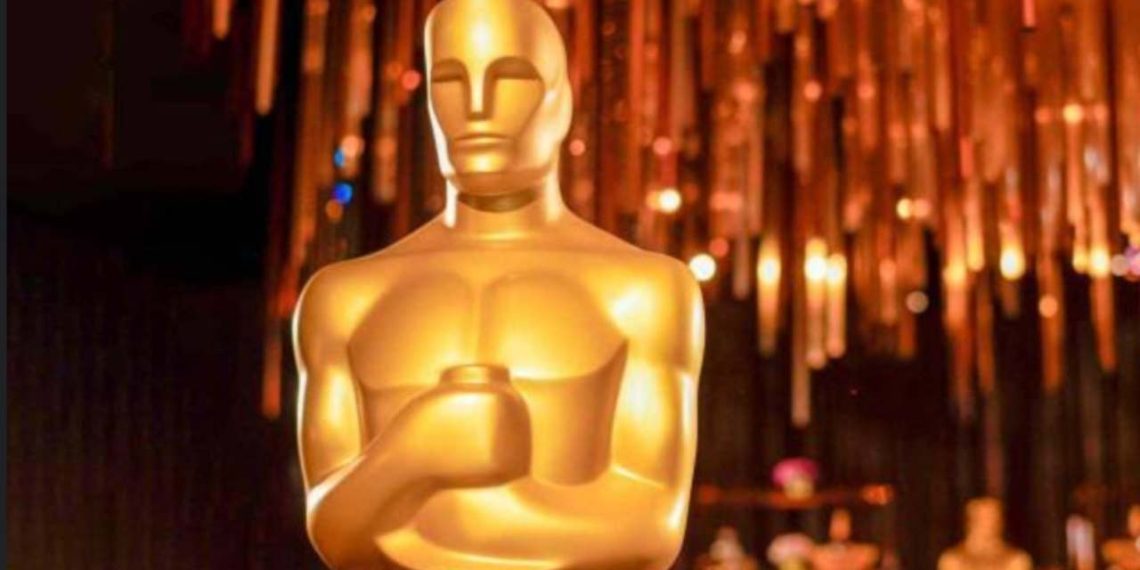In the end, it was all rather foreseeable. Christopher Nolan’s monumental film “Oppenheimer” emerged as the dominant force at the 2024 Oscars, securing seven accolades, notably clinching Best Director and Best Picture.
Cillian Murphy earned the Best Actor title, while Robert Downey Jr. claimed the Best Supporting Actor award. Yorgos Lanthimos’s unconventional masterpiece “Poor Things” gave a spirited chase, bagging four awards, including the coveted Best Actress honor bestowed upon Emma Stone for her remarkable portrayal of Bella Baxter, a character embodying the essence of a mature woman trapped in a child’s body.
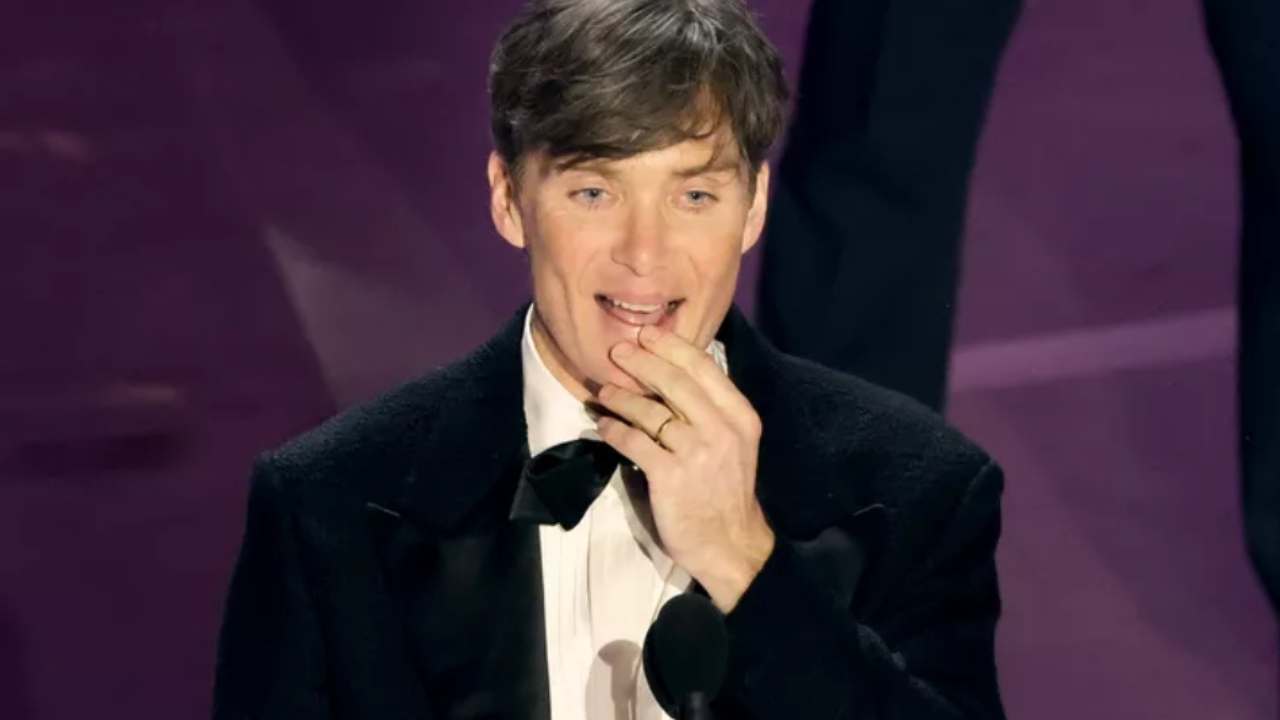
However, the 96th Academy Awards infused a sense of life and vitality often absent in the ceremony. This vigor may have stemmed from the diverse array of 10 Best Picture nominees, spanning from Jonathan Glazer’s haunting Holocaust drama “The Zone of Interest” to the feminist charm of Greta Gerwig’s “Barbie,” and the sophistication of the French thriller “Anatomy of a Fall.”
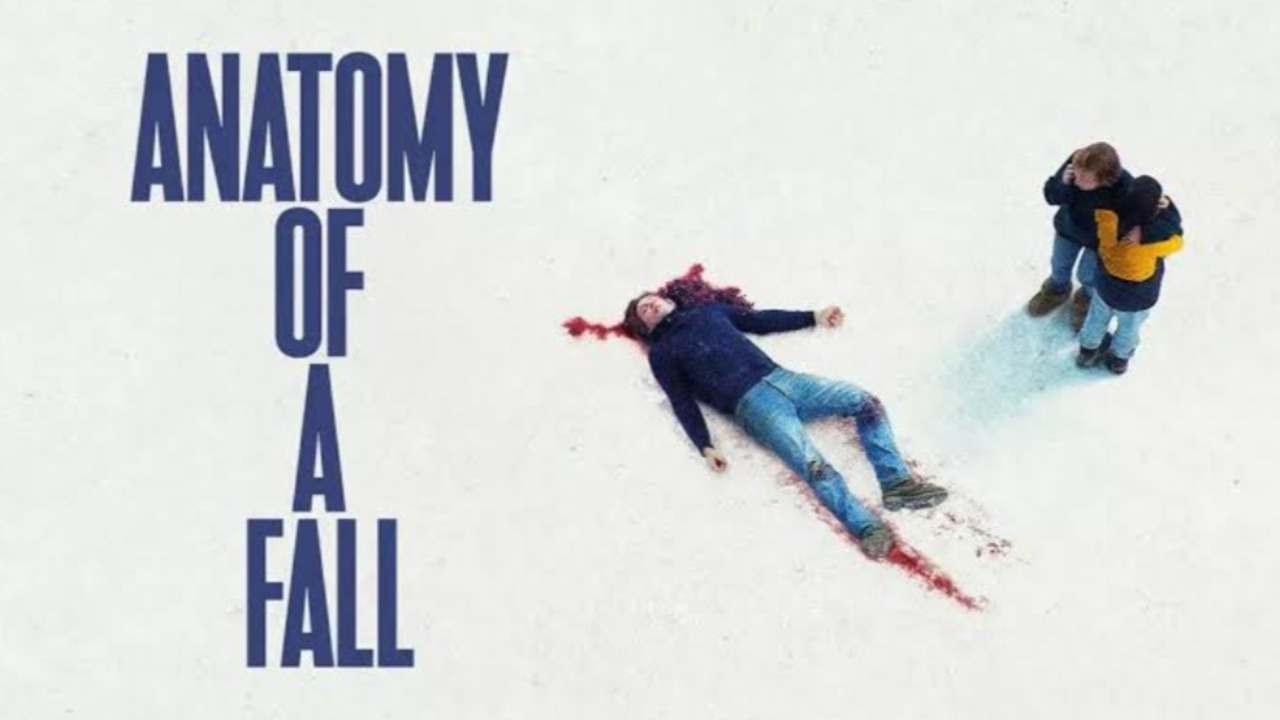
Alternatively, it could be attributed to the exceptional quality of this year’s Best Original Song category, which, for once, invigorated the event with captivating performances.
The night witnessed stirring performances like “Wahzhazhe (A Song for My People),” delivered with fervor by a collective of Osage and Indigenous American musicians.
Billie Eilish stirred emotions with her rendition of “What Was I Made for?” And then came the exuberant rendition of “I’m Just Ken,” featuring Ryan Gosling in a striking pink, diamond-studded suit, joined by Slash from Guns N’ Roses and a chorus of Kens, destined to be the evening’s most shared moment on social media.
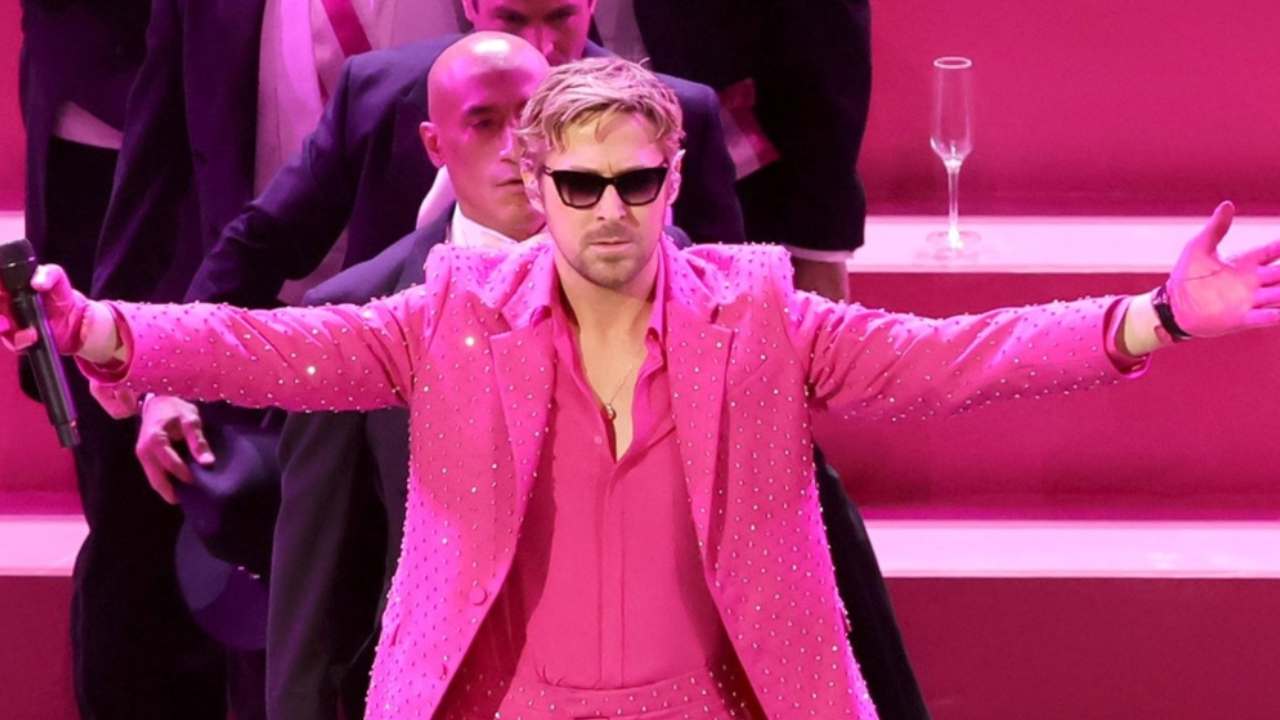
President Trump added to the liveliness by posting a critical review of Jimmy Kimmel online, prompting one of the host’s swiftly improvised quips: “Isn’t it past your jail time?”
Overall, the comedy at the 2024 Oscars landed with swifter and sharper wit than usual. John Cena’s presentation of the Best Costume Design award, sporting only the fig leaf of an envelope, paid homage to the infamous streaker who famously photobombed David Niven at the 1974 Oscars, eliciting a hearty applause.
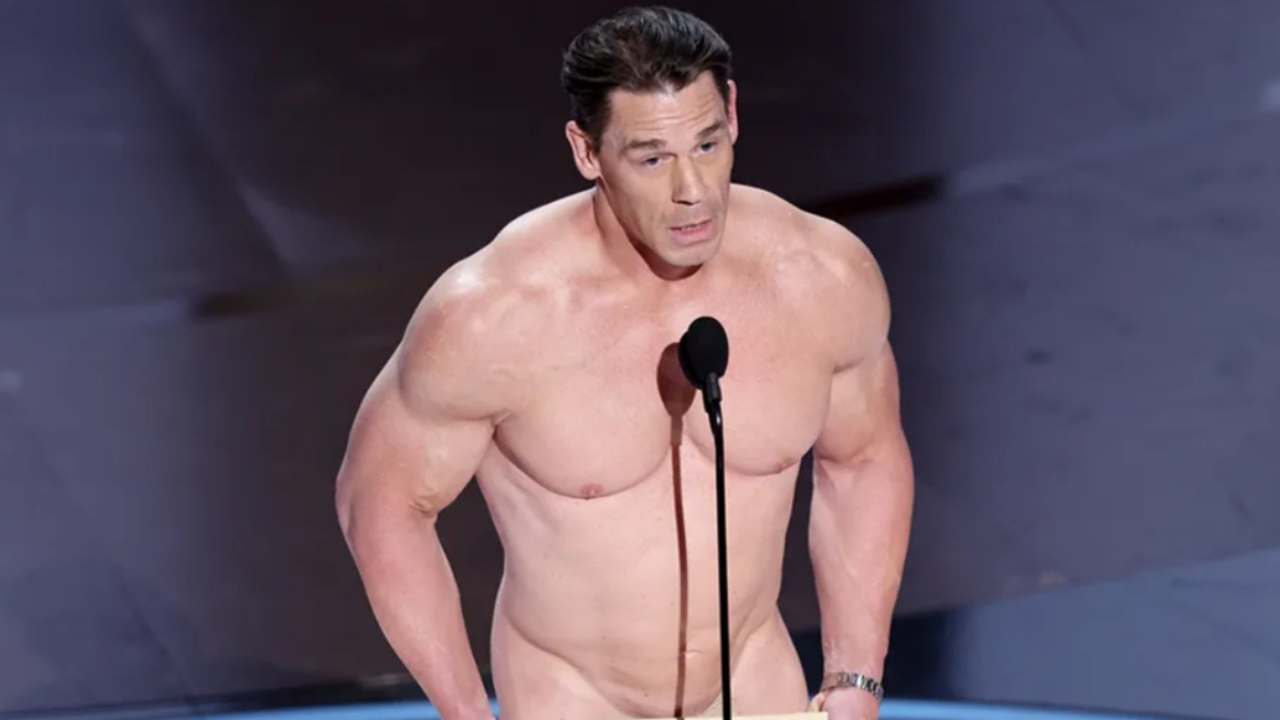
The dynamic duo of Arnold Schwarzenegger and Danny DeVito brought the house down with their banter about Batman, earning a standing ovation. Ryan Gosling and Emily Blunt’s playful Barbenheimer routine capitalized on the summer rivalry between two blockbuster films, adding to the laughter.
However, the night’s most surprising innovation turned out to be its most captivating. Five former acting category winners stepped forward to nominate this year’s award recipients, injecting warmth and relevance into the proceedings.
Lupita Nyong’o moved Best Supporting Actor winner Da’Vine Joy Randolph to tears with a touching tribute to her grandmother, whose glasses she wore, before handing her the Oscar for her luminous performance in “The Holdovers.”
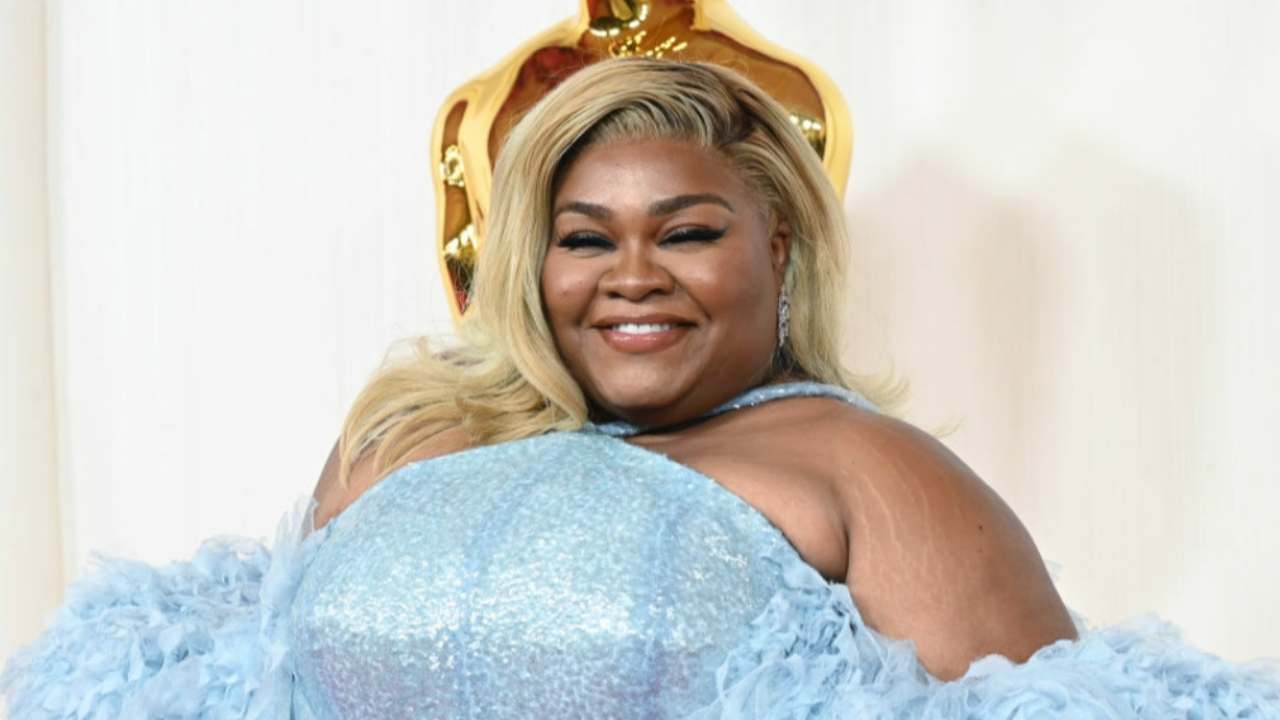
Nicolas Cage provided a comedic highlight while nominating Paul Giamatti for Best Actor in the poignant comedy “The Holdovers” by Alexander Payne.
The tributes, replacing movie clips, infused the evening with emotion, adding depth to a night that maintained a sense of restraint, though glimpses of strong emotions emerged. Da’Vine Joy Randolph, clutching her Oscar tightly as she spoke, was moved to tears as she expressed,
“For so long, I’ve always wanted to be different, and now I realize I just need to be myself.”
Emma Stone, grappling with a wardrobe malfunction—attributed to the chaos surrounding the “I’m Just Ken” singalong—was visibly touched and surprised by her win over favorite Lily Gladstone, whose performance anchored “Killers of the Flower Moon.”
“The best part about making movies is all of us together,” Stone reflected, collecting her second Best Actress Oscar, seven years after her win in “La La Land.”
“I am deeply honored to share this with every cast member, every crew member, every single person who poured their love, care, and brilliance into the making of this film.”
Christopher Nolan, possibly feeling jubilant at receiving recognition from the Academy after seven previous nominations left him empty-handed, maintained his characteristic low-key demeanor.
However, his voice cracked with emotion as he paid homage to the art form of cinema.
“Movies are just a little over 100 years old,” he remarked. “We don’t know where this incredible journey is going from here, but to know that you think that I’m a meaningful part of it means the world to me.”
The UK celebrated a strong showing at the 2024 Oscars, marked by a blend of contained delight and diffidence. British accents resonated as “Poor Things” clinched three technical awards for hair and makeup, costume, and production design, while “The Zone of Interest” secured Best Sound, its impactful soundtrack contributing significantly to its chilling effect.
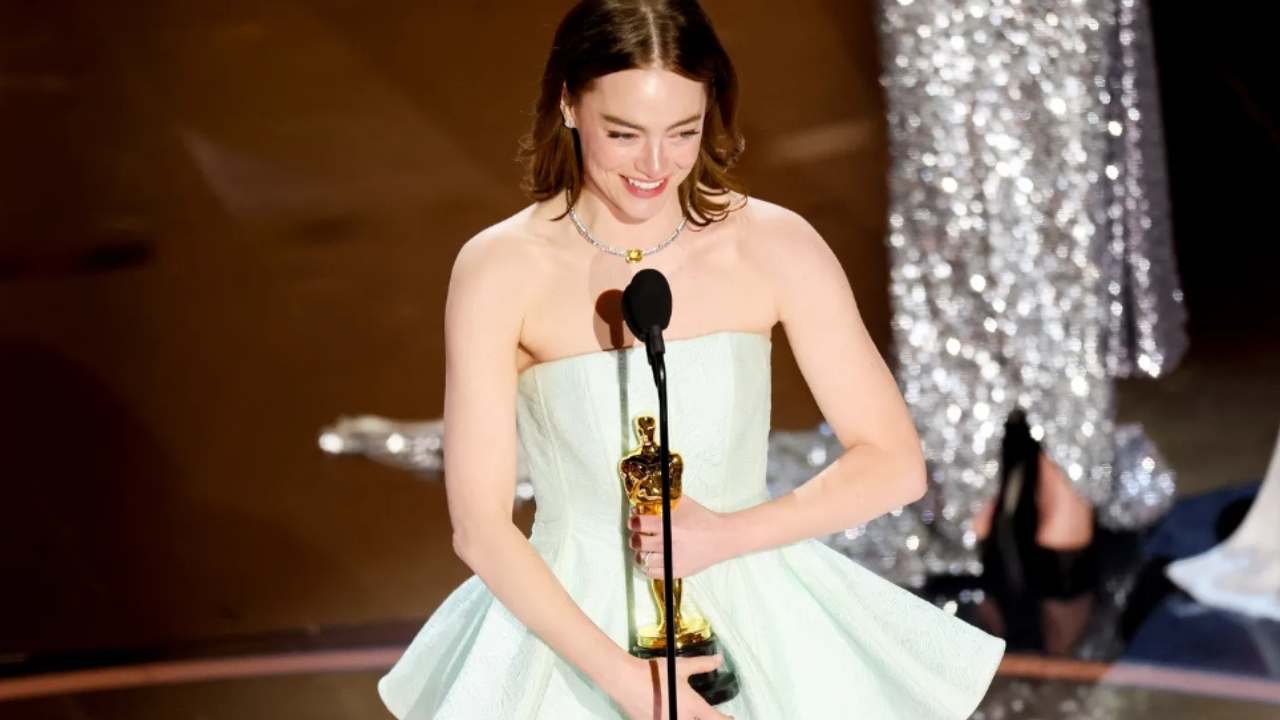
Christopher Nolan’s “Oppenheimer” emerged as the night’s standout, winning Best Picture in a casually presented manner by Al Pacino.
The film also garnered recognition for editing, soundtrack, and cinematography. Robert Downey Jr. claimed his first Oscar after three attempts, receiving the Best Supporting Actor award for his portrayal of J. Robert Oppenheimer’s nemesis, Lewis Strauss.
In his speech, Downey Jr. humorously acknowledged his turbulent past, expressing gratitude to his wife, and his long-standing lawyer, who had tirelessly supported him through thick and thin.
The dominance of “Oppenheimer,” a sweeping biopic chronicling the life of the man behind the atomic bomb, epitomized an evening that celebrated comedy yet was interspersed with profound moments of gravity.
In his humble Best Actor acceptance speech, Cillian Murphy reflected,
“For better or worse, we’re all living in Oppenheimer’s world. So I would really like to dedicate this to the peacemakers everywhere.”
Jonathan Glazer, the director of “The Zone of Interest,” a poignant film set in Auschwitz, delivered a powerful message about the film’s relevance to contemporary issues, particularly the violence in the Middle East.
Addressing the audience alongside producer James Wilson, Glazer, visibly nervous, emphasized their rejection of the hijacking of Jewish identity and the Holocaust by ongoing conflicts.
He dedicated the award to the memory of a woman named Alexandria, whom he met, acknowledging her courageous efforts as a member of the Polish resistance who provided aid to starving prisoners at Auschwitz.
The In Memoriam section opened with a poignant video tribute to the late Russian opposition leader, Alexei Navalny, symbolizing resistance against oppression.
“20 Days in Mariupol,” a gripping documentary depicting the plight of the Ukrainian city under Russian siege, clinched the Best Documentary award.
Director Mstyslav Chernov delivered a heartfelt plea for support for Ukraine, expressing regret over the necessity of making the film.
Recognizing the significance of this being the first Oscar in Ukrainian history, Chernov expressed a poignant sentiment:
“I wish I had never made this film. I wish to be able to exchange this to Russia for never attacking Ukraine, never occupying our cities.”
The Oscars this year seemed to be a well-considered affair, celebrating a lineup of unusually intricate films. Despite their nominations, “Maestro,” Bradley Cooper’s homage to composer Leonard Bernstein, and Martin Scorsese’s epic western “Killers of the Flower Moon,” depicting the tragedies of the Osage Indians, returned home without any awards.
Celine Song’s delicate and nuanced “Past Lives” also went unrecognized. However, Greta Gerwig’s underrated “Barbie” did manage to secure the Best Song award for “What Was I Made For?” performed by Billie Eilish and her brother, Finneas O’Connell, propelling Eilish to become a double Oscar-winner at the young age of 22.
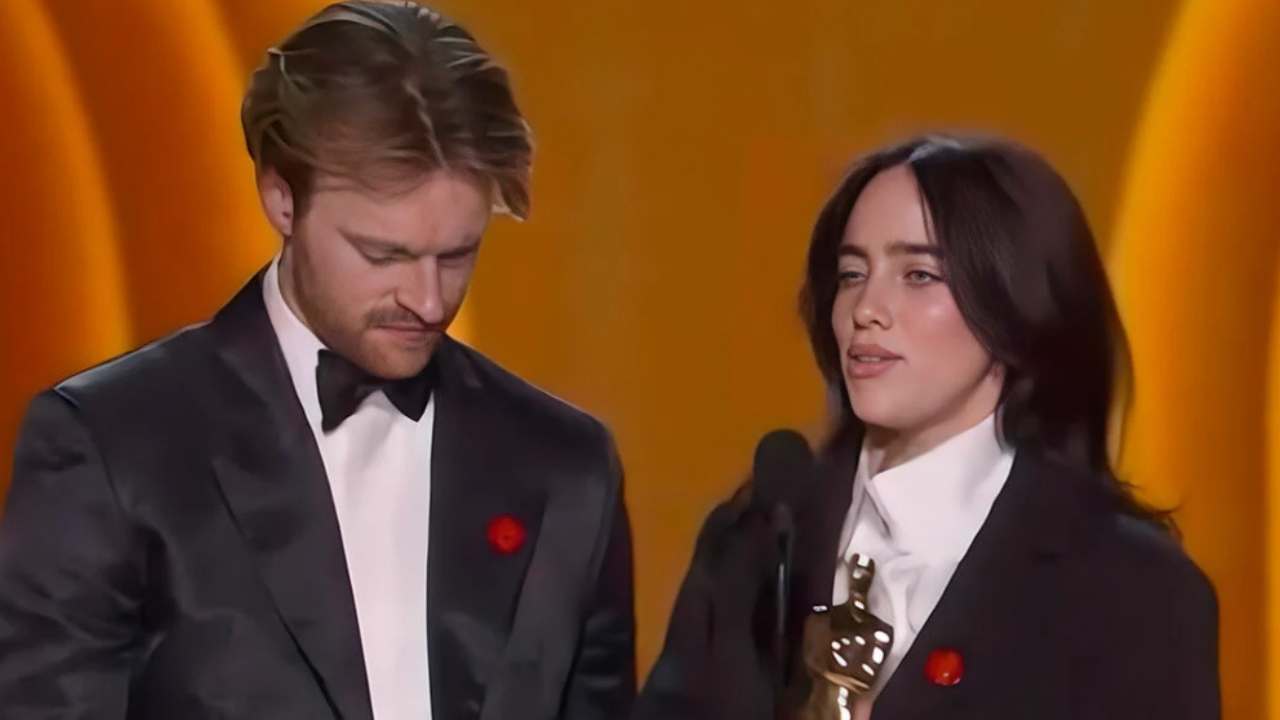
The intricately crafted French murder mystery, “Anatomy of a Fall,” secured the Best Original Screenplay award for the talented husband and wife duo, Justine Triet and Arthur Harari. Triet humorously remarked,
“It will help my mid-life crisis.”
The satirical gem, “American Fiction,” earned the Best Adapted Screenplay award, with writer and director Cord Jefferson expressing gratitude for the transformative opportunity to create the film and advocating for greater investment in both lower-budget films and blockbusters.
Meanwhile, acclaimed filmmaker Wes Anderson received his first Oscar for his live-action short, “The Wonderful Story of Henry Sugar,” although he was not present to accept it.
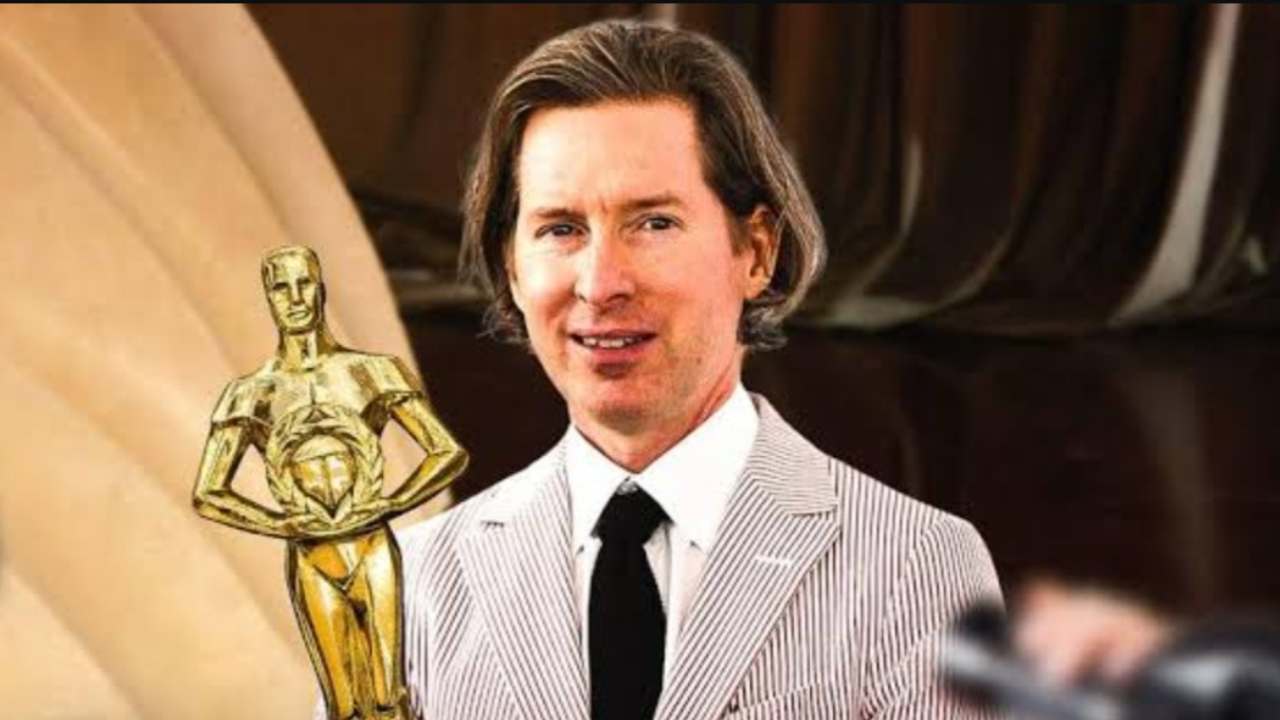
Another notable absence was the 83-year-old Studio Ghibli legend, Hayao Miyazaki, who won the Best Animated Film award for “The Boy and the Heron,” supposedly his final movie.
Sean Ono Lennon led the audience in chanting “Happy Birthday” to his mother Yoko, who turned 91, while accepting an Oscar for “War Is Over,” which won Best Animated Short.
All things considered, this Oscar night was predictably unsurprising yet oddly delightful, offering a rare fusion of good humor, profound seriousness, and exceptional films.
As Steven Spielberg aptly remarked before presenting Christopher Nolan with the Best Director prize, it truly has been “a great and eclectic year.”


